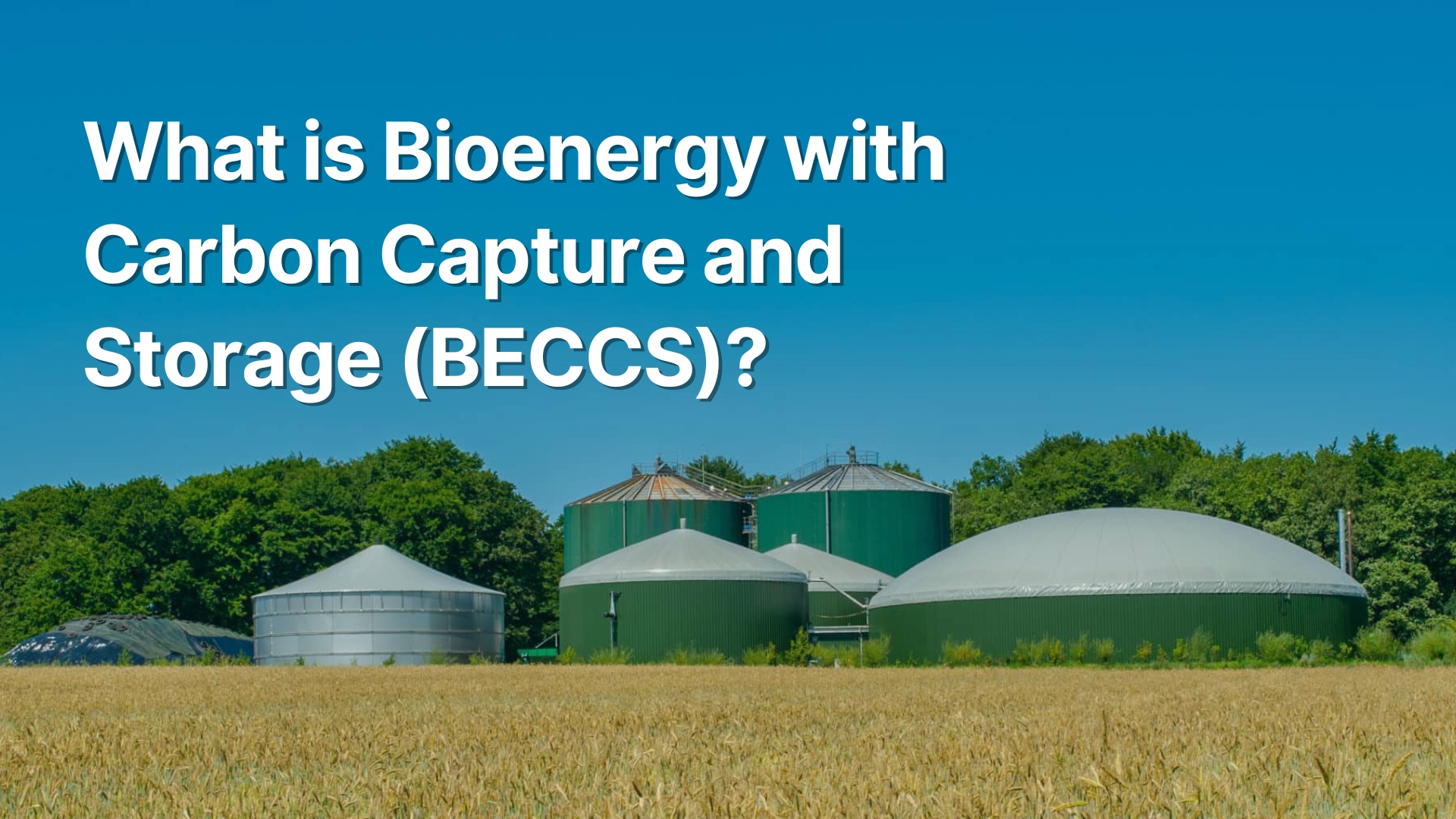Understanding BECCS: Benefits, Challenges, and Carbon Credit Potential
Others

Bioenergy with Carbon Capture and Storage (BECCS) is a climate mitigation approach that combines the production of energy from biomass with the capture and long-term storage of carbon dioxide (CO₂). It enables simultaneous energy generation and removal of atmospheric CO₂.
The feedstocks used in BECCS include:
-
Agricultural residues (such as rice straw and sugarcane waste)
-
Energy crops (such as fast-growing tree species like willows)
-
Algae
-
Municipal solid waste
Currently, most BECCS feedstock comes from forestry and agricultural sources. Biomass absorbs CO₂ during growth via photosynthesis. When converted into energy through combustion or biofuel production, the carbon is typically released. However, BECCS systems capture this carbon before it enters the atmosphere and store it underground in secure geological formations.
This makes BECCS particularly valuable for decarbonizing hard-to-abate sectors such as heavy industry, long-distance trucking, and aviation, where direct electrification remains technologically or economically unfeasible.
Challenges
Despite its inclusion in many global climate models to limit warming to 1.5°C, BECCS faces numerous technical, environmental, economic, and social concerns:
-
Significant emissions: Biomass is not entirely carbon-neutral. Emissions from land-use change, fertilizer use, harvesting, processing, transportation, and CCS operations must be accounted for.
-
High cost: Carbon capture infrastructure is complex and energy-intensive. Estimated costs range from €86 to €172 per tonne of CO₂, making BECCS economically challenging without strong public subsidies.
-
Permanence risk: Stored CO₂ could potentially leak from underground reservoirs. In rare but serious cases, concentrated CO₂ leaks may pose public health risks or trigger seismic activity near injection sites.
-
Large land requirement: Meeting global climate targets with BECCS would require dedicating enormous land areas—potentially up to twice the size of India—for energy crops. This could compete directly with food production and elevate food security risks.
-
Biodiversity impact: Expansion of monoculture bioenergy plantations can destroy natural habitats and reduce ecosystem diversity, potentially causing species loss equivalent to unchecked climate change at 2.8°C warming.
-
Delayed climate action: Overreliance on BECCS in climate projections may reduce urgency for near-term emission reductions and deforestation prevention, creating a false sense of security.
-
Social risk: Land acquisition for large-scale BECCS projects can trigger land rights conflicts and deepen social inequities, particularly in vulnerable or marginalized communities.
Can BECCS Projects Generate Carbon Credits?
Yes. BECCS projects can generate carbon credits, and interest in this mechanism is growing despite ongoing concerns.
For instance, major technology companies such as Microsoft have signed advance purchase agreements with BECCS developers for future carbon credits. However, due to the high operational costs, these projects remain heavily reliant on public funding. Long-term carbon credit contracts are gaining momentum as a market instrument to provide financial viability.
In April 2025, Verra released a new methodology (VMD0059) specifically tailored to support carbon accounting and verification for BECCS initiatives.
Want to expand your knowledge on decarbonization and carbon market topics? Don’t miss our weekly articles on Insights page and follow our LinkedIn to stay updated 🌳
References:
Consoli, C. (2019). BIOENERGY AND CARBON CAPTURE AND STORAGE. In Global CCS Institute. https://www.globalccsinstitute.com/wp-content/uploads/2019/03/BECCS-Perspective_FINAL_PDF.pdf
Fajardy, M., & Greenfield, C. (2023). Bioenergy with Carbon Capture and Storage. IEA. https://www.iea.org/energy-system/carbon-capture-utilisation-and-storage/bioenergy-with-carbon-capture-and-storage
Fern. (n.d.). Six problems with BECCS. In Fern. https://www.fern.org/fileadmin/uploads/fern/Documents/2022/Six_problems_with_BECCS_-_2022.pdf
Geoengineering Monitor. (2024). BECCS carbon credit sales hit record levels despite increasing environmental and economic concerns. Geoengineering Monitor. https://www.geoengineeringmonitor.org/geo-map-beccs-nov24
Verra. (2025). Verra Releases Second Set of Modules and Tools for Carbon Capture and Storage. Verra. https://verra.org/verra-releases-second-set-of-modules-and-tools-for-carbon-capture-and-storage

